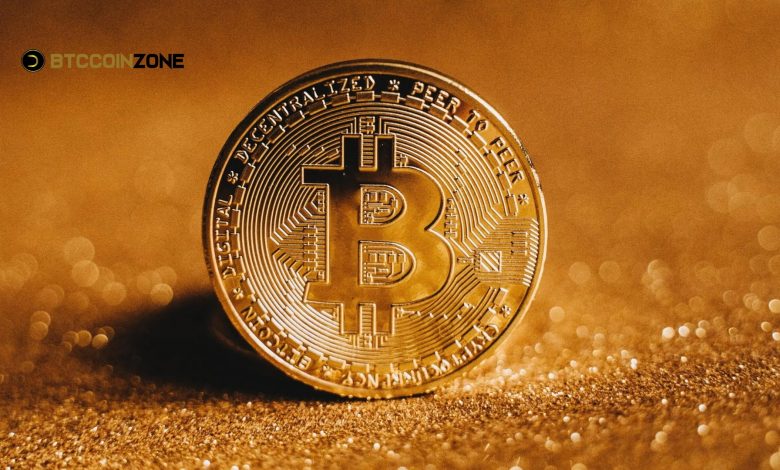Bitcoin 2.0 Release Date Expectations for Bitcoin’s Next Evolution

Bitcoin 2.0 Release Date: In the world of digital currencies, one of the most talked-about projects for the foreseeable future is the so-called “Bitcoin 2.0.” This refers to the next version of Bitcoin, which is said to fix some of the problems that have plagued the original network since its start in 2009. Since there is a lot of guesswork about when Bitcoin 2.0 might be released, this article will explore what features might be included, when it could be released, and what it means for the cryptocurrency market.
Knowing Bitcoin 2.0
“Bitcoin 2.0” is an umbrella term for all of Bitcoin’s evolution and development, including adding new features and enhancements. It is not a specific project or an update. The original Bitcoin network gave rise to a trustworthy decentralized digital currency that has now become revolutionary. However, it has issues with scalability, transaction speed, and costs during periods of high demand. The goal of Bitcoin 2.0 is to use more advanced protocols and technologies to fix these difficulties.
Key Features of Bitcoin 2.0

- Scalability Solutions: One of Bitcoin’s most pressing issues is its limited transaction throughput. Bitcoin 2.0 aims to implement solutions like the Lightning Network and other layer-2 scaling techniques. These technologies would enable faster transactions and significantly reduce costs, allowing Bitcoin to compete with traditional payment systems.
- Smart Contracts: Another key feature of Bitcoin 2.0 is the integration of smart contract capabilities. While Ethereum pioneered this concept, adding smart contracts to Bitcoin could open new use cases, from decentralized finance (DeFi) applications to complex multi-signature transactions.
- Improved Privacy Features: Privacy has always been a concern for cryptocurrency users. Bitcoin 2.0 is expected to enhance privacy protocols, making transactions more confidential and secure. Technologies like CoinJoin and zero-knowledge proofs could be incorporated to give users greater anonymity.
- Interoperability: As the cryptocurrency ecosystem grows, the need for interoperability between blockchains has become apparent. Bitcoin 2.0 could introduce features allowing seamless communication and transactions between Bitcoin and other blockchains, fostering collaboration within the crypto space.
- Governance Mechanisms: Current governance structures in Bitcoin are often contentious, with stakeholder disagreements leading to forks and divisions. Bitcoin 2.0 may implement a more structured governance model that allows community-driven decision-making and ensures a more cohesive development process.
Bitcoin Development Today
Although the Bitcoin community is currently debating a number of potential enhancements and proposals, no formal “Bitcoin 2.0” project is in the works. Developers are always improving the Bitcoin protocol, and some of these ideas are starting to gain some popularity.
Notable among these changes is the November 2021 rollout of the Taproot update. Taproot enhanced privacy for complicated transactions and included new scripting features. This update does not constitute Bitcoin 2.0 but marks a move toward a more flexible Bitcoin ecosystem.
Also, in an effort to make Bitcoin more usable and scalable, many developers are looking into layer-2 solutions like the Lightning Network. These developments show that people are cognizant of the need for evolution and are making efforts to implement it.
Expected Release Date
Due to the ongoing development, it isn’t easy to provide a firm release date for Bitcoin 2.0. Bitcoin development is community-driven and typically moves at its own pace, unlike traditional software projects with specified timetables. Nonetheless, some engineers and analysts are pessimistic about the impending improvements, predicting they will not materialize until at least 2025.
Community opinion, technical developments, and outside market forces are a few of the variables that will determine when significant changes will be released. As developers introduce new innovations and changes, the community must participate in debates and vote on which features to prioritize.
Read More: Most Famous Bitcoin Investors Cryptocurrency Revolution Pioneers
Implications for the Cryptocurrency Market

The release of Bitcoin 2.0 may greatly affect the wider cryptocurrency market. If its scalability and transaction speeds are improved, Bitcoin’s utility and popularity may increase. Further ecosystem enrichment may result from introducing new decentralized applications that are made possible by integrating interoperability features and smart contracts.
But new Bitcoin 2.0 features might also be problematic. An improved Bitcoin might pose a greater threat to existing altcoins like Ethereum, which prioritize scalability and smart contracts. Investors may reassess their holdings in response to this competition, which could cause price volatility and changes in market dynamics.
Summary
The term “Bitcoin 2.0” is vague and could refer to many different things, but it essentially describes Bitcoin’s inevitable development in light of its shortcomings and the shifting cryptocurrency market. There may not be an official release date yet, but the community’s dedication to adapting and inventing is evident. The continuous development and advancements.
All parties involved—investors, developers, and users—would do well to monitor Bitcoin’s and the cryptocurrency market’s overall development trajectory in the future. We look forward to an interesting ride with Bitcoin as it develops, but one thing is certain: Bitcoin is still at the forefront of digital money innovation.
FAQs
Q1: What is Bitcoin 2.0?
Answer: Bitcoin 2.0 improves the functionality and scalability of the original Bitcoin protocol. It usually incorporates smart contracts, faster transactions, and more privacy. Bitcoin 2.0 iterations include Bitcoin XT, Bitcoin Classic, and Bitcoin Cash. There is no official release date or version of “Bitcoin 2.0.”
Q2: When is the Bitcoin 2.0 release date?
Answer: Bitcoin 2.0 has no release date as a new project. Bitcoin and related technologies progress through community ideas and discussions. Bitcoin Improvement Proposals (BIPs) incrementally upgrade the Bitcoin protocol, and future improvements depend on community approval.
Q3: What are the expected features of Bitcoin 2.0?
Answer: Though speculative, Bitcoin 2.0 may introduce smart contracts, sharding, layer two solutions, improved privacy, and transaction efficiency. With these enhancements, the Bitcoin network may handle more transactions and compete with other blockchain platforms. The community is still discussing and developing these features.




